“My care team was definitely a team of angels in disguise. They never gave up on me.”
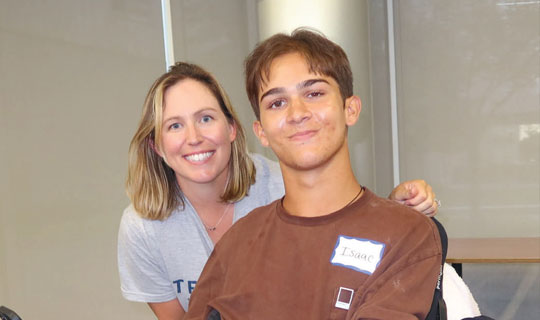
How a new program helps youth with spinal cord injuries expand their horizons.
Isaac Lima of Roselle Park remembers the 2021 injury that severely limited his movement and required him to use a wheelchair.
He was a 14-year-old cheerleader and a flip went terribly wrong, causing him to land on his head. He tried to stand—or even move—but couldn’t. “I kept telling myself, ‘Get up, get up,’” he says. “In the ambulance, I remember screaming, ‘What happened to me?’” Isaac had sustained a spinal cord injury and spent four inpatient months at Children’s Specialized Hospital (CSH), where he embarked on the arduous process of rehabilitation.
“At first, I was in denial and depressed, wanting to shut out the world,” he says. A fellow patient changed his outlook. “I saw a boy who was in a coma start walking after just a month,” he says. “That inspired me to think, ‘I can’t sit still. I need to get on with life.’”
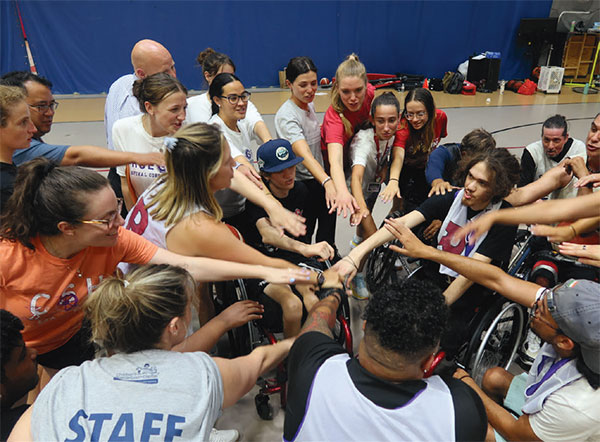
Isaac credits staff at CSH for helping him navigate a challenging journey. “My care team was definitely a team of angels in disguise,” he says. “They never gave up on me.”
Three years later, the CSH team continues to support Isaac, now 17, and other young patients with spinal cord injuries through a unique and innovative new initiative from CSH and the Rutgers School of Health Professions called the True Grit Spinal Cord Program. The groundbreaking program is designed to empower youth ages 16 to 21 through an immersive five day sleepaway experience that helps participants gain independence, skills, confidence and a sense of community.
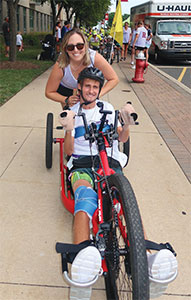
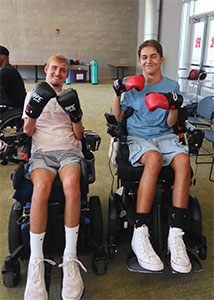
“We wanted a program with peer support where teens could explore entering the workforce, going to college and trying new leisure activities and sports,” says occupational therapist Kassandra Boyd, OTD, OTR/L, Clinical Coordinator of Spinal Cord Programs at CSH. “I worked in inpatient rehabilitation for 10 years, and there was always a sense of needing to do more for teens with spinal cord injuries.”
Learning From Peers
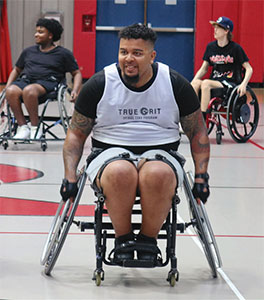
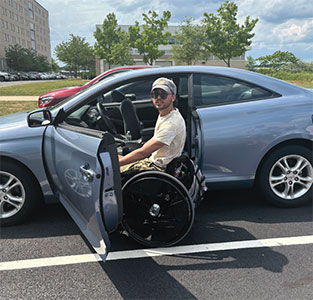
Boyd got a doctorate specifically “to address this second chance for teens,” she says. Adolescents with spinal cord injuries are often isolated at a time when they’re defining who they are, striving for independence and developing ideas about the future. But few if any programs existed nationwide to support them.
True Grit provides opportunities for these youths to gain self-sufficiency, improve quality of life and expand their horizons through staying in a dorm on the Rutgers University Livingston campus with support from both therapists and peers. Six teens attended the program’s first annual residential session in July.
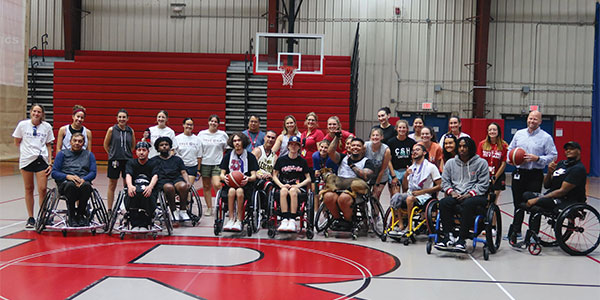
A typical day begins with breakfast in the dorm dining hall—in itself an accomplishment for teens who are often away from family members or other familiar caregivers for the first time. The rest of the day includes group activities from adaptive sports like boxing, yoga, basketball, baseball, pickleball and hand cycling to workshops on vocational skills, sexuality, adaptive driving and college life. The program also includes individualized physical and occupational therapy along with psychotherapy.
Just as important is peer support. “What they learn from each other is remarkable,” Boyd says. “Anybody who has a strength is able to teach others. That’s really the magic of the week.”
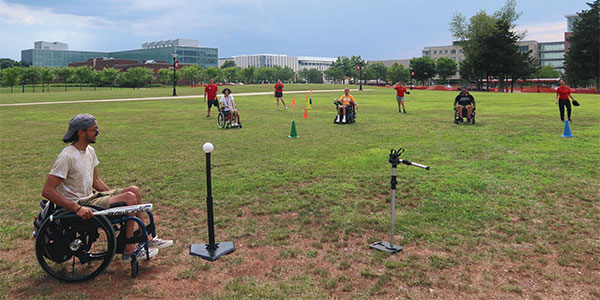
Isaac was nervous about attending at first. “But after the first day, I was comfortable and it was immediately easy to form friendships,” he says. “Every day we got closer and closer.”
Bonds extended to both participants and staff. He especially connected with a caregiver who coached him on activities from self-care to cooking. “When it was time to leave, we were both crying,” Isaac says. “I can’t wait until next year!”
Learn more about Spinal Cord Rehabilitation at RWJBarnabas Health and the True Grit Spinal Cord Program.
 View full issues of Healthy Together magazine by New Jersey region:
View full issues of Healthy Together magazine by New Jersey region: